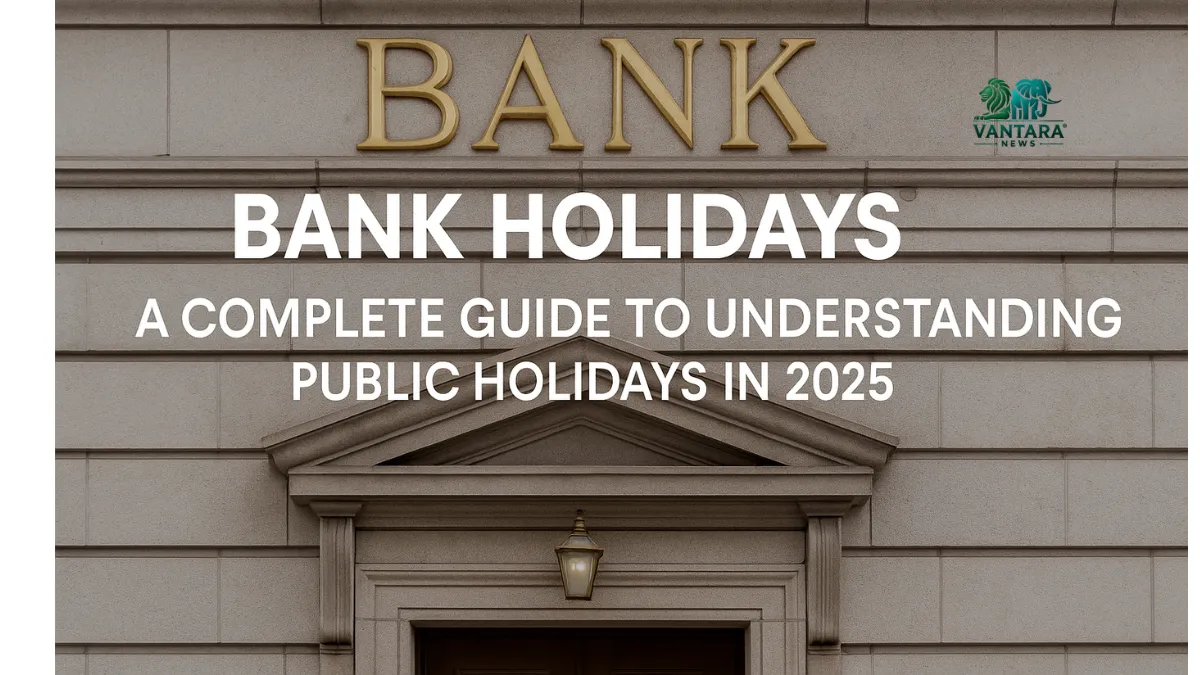Bank holidays are an essential aspect of every working individual’s calendar. These designated days off not only provide a welcome break from work but also serve important cultural, religious, and national significance. In this detailed guide, we’ll walk you through everything you need to know about bank holidays in 2025—what they are, why they exist, and how they impact businesses and daily life.
What Are Bank Holidays?
A bank holiday is a public holiday during which banks and most businesses are closed for the day. These holidays are often established by law or custom and are generally observed across an entire country or specific regions. The term “bank holiday” is most commonly used in the United Kingdom, Ireland, and some Commonwealth countries, but similar concepts exist worldwide.
Bank holidays can commemorate religious festivals, national events, or seasonal celebrations. For instance, Christmas Day and New Year’s Day are globally recognized bank holidays, while others like the Spring Bank Holiday or Labor Day may vary by country or region.
Why Bank Holidays Matter
Bank holidays play a crucial role in maintaining a balanced lifestyle for employees and business owners alike. Here’s why they’re significant:
- Rest and Recuperation: After weeks of work, a scheduled break allows individuals to rest, recharge, and return to work more productive.
- Cultural Observance: Many bank holidays mark religious or national celebrations, allowing citizens to participate in traditional events and ceremonies.
- Economic Impact: While some businesses may temporarily close, holidays can also boost tourism and retail sales, especially during festive periods.
- Workplace Morale: Employees often view bank holidays as valuable perks, contributing to job satisfaction and a better work-life balance.
Key Bank Holidays in 2025 (United Kingdom)
Here is a table of the major UK bank holidays in 2025, including England, Wales, Scotland, and Northern Ireland:
| Date | Day | Holiday Name | Region Covered |
|---|---|---|---|
| January 1 | Wednesday | New Year’s Day | UK-wide |
| March 17 | Monday | St. Patrick’s Day | Northern Ireland |
| April 18 | Friday | Good Friday | UK-wide |
| April 21 | Monday | Easter Monday | England, Wales, NI |
| May 5 | Monday | Early May Bank Holiday | UK-wide |
| May 26 | Monday | Spring Bank Holiday | UK-wide |
| July 12 | Saturday | Battle of the Boyne (Orangemen’s Day) | Northern Ireland |
| August 4 | Monday | Summer Bank Holiday (Scotland) | Scotland only |
| August 25 | Monday | Summer Bank Holiday | England, Wales, NI |
| December 25 | Thursday | Christmas Day | UK-wide |
| December 26 | Friday | Boxing Day | UK-wide |
Note: When a bank holiday falls on a weekend, a substitute weekday (usually the following Monday) is observed instead.
Bank Holidays Around the World
While this guide focuses primarily on the UK, bank holidays are a global phenomenon. Here are some examples from different countries:
- United States: Known as federal holidays, including Independence Day (July 4) and Thanksgiving Day (fourth Thursday of November).
- India: Includes Republic Day (January 26), Diwali (varies by year), and Mahatma Gandhi’s birthday (October 2).
- Australia: Includes Australia Day (January 26), ANZAC Day (April 25), and regional holidays like Melbourne Cup Day.
- Germany: Includes national holidays like Unity Day (October 3) and religious observances such as Good Friday and Christmas.
Each country and even individual regions within countries may observe different public holidays, so it’s important to check local calendars for the most accurate information.
How Businesses Handle Bank Holidays
Businesses often prepare in advance for bank holidays, especially in sectors like banking, logistics, and retail. Here’s how operations are typically affected:
- Banks and Financial Institutions: Usually close for the day, with online banking services still operational.
- Retail and Hospitality: May stay open, especially in tourist-heavy areas, but might operate with limited hours.
- Public Transport: Often runs on a reduced schedule; some services may not operate at all.
- Workplace Policies: Employees may receive paid leave, or in some industries, may be required to work with holiday pay rates.
Freelancers, small business owners, and remote workers should also consider how bank holidays affect client availability, payment processing, and deadlines.
Making the Most of Your Bank Holidays
Bank holidays are perfect opportunities to unwind, travel, or spend quality time with loved ones. Here are a few suggestions to make the most of your free days:
- Plan Short Getaways: Bank holiday weekends are ideal for short trips or staycations.
- Catch Up on Hobbies: Whether it’s reading, gardening, or painting, take time for personal passions.
- Reconnect with Family: Use the break to gather with family and friends for meals or outdoor activities.
- Rest and Reflect: Simply relaxing at home can do wonders for mental health and productivity.
Also read: Pahalgam Tourist Places: संकट के बाद उम्मीद की किरण
Conclusion
Bank holidays are much more than just days off—they’re an integral part of cultural life, workplace rhythm, and national identity. By understanding how they function and planning accordingly, you can make the most out of each holiday, whether for rest, recreation, or reflection.
As 2025 unfolds, keep an eye on your regional calendar and use these breaks wisely to recharge and stay connected with what matters most.













